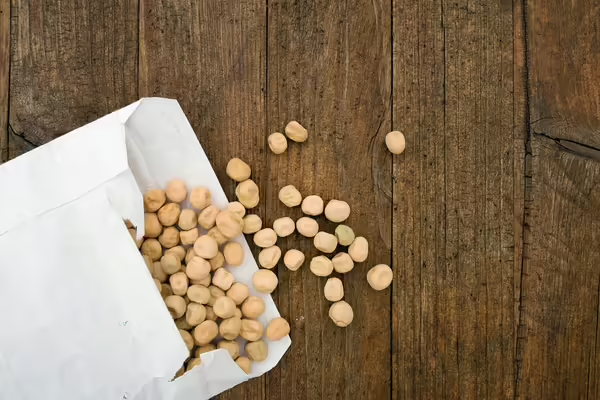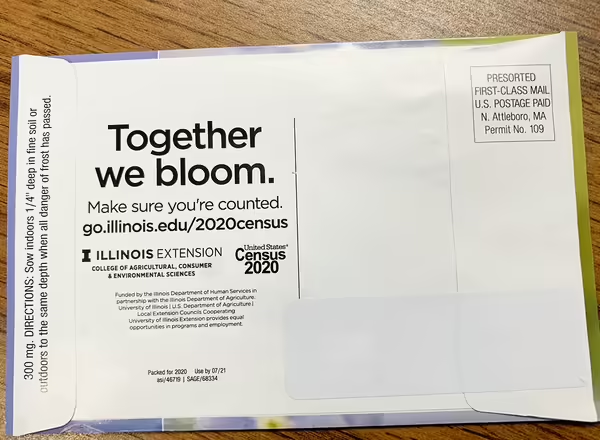
URBANA, Ill. – Mystery packages with unidentified seeds have shown up in mailboxes across the U.S. over the past week. University of Illinois Extension horticulture experts urge people to never plant unidentified seeds.
The U.S. Department of Agriculture is investigating the situation and collecting seeds packets to test their contents. The packages, which appear to be from China, have not yet been reported in Illinois, but officials in 27 states are urging residents to report any suspicious packets of seeds.
Illinois Extension horticulture experts advise it is not a good practice to plant seeds from unknown origins or of an unknown species.
“One of the major risks would be the introduction of a potential invasive plant species,” says Illinois Extension Forester Chris Evans. “Those seeds could also harbor pests or diseases that could impact native species, agricultural crops, or desirable ornamentals.”
If you receive unsolicited and unidentified packages of seeds, the Illinois Department of Agriculture recommends you do no open the package or throw it out. Contact the department by emailing agr.seeds@Illinois.gov with your name, phone number and the number of packages received and with for further instruction. You can also contact the Illinois plant regulatory official or the Animal and Plant Health Inspection Service Illinois plant health director.
Initial reports from the USDA suggests these seeds might be part of a “brushing scam” where online sellers send unsolicited items and then post false customer reviews to boost sales.

The use of marketing seed packets has become a popular marketing tool. In late July, Illinois Extension sent out “Together We Bloom” packets of wildflower and forget-me-not seeds to encourage residents to fill out their census form. Illinois Extension’s packets of forget-me-nots are the variety myosotis sylvatica and will arrive in packets clearly labeled with the contents of the packet and the organization who sent them.
Extension partnered with the Illinois Department of Agriculture to address low census response rates in select Illinois communities. Responding to the 2020 Census helps direct funding for public healthcare, Supplemental Nutrition Assistance Programs, unemployment insurance, farming grants, and affordable housing.
Horticulture Educator Nancy Kreith says forget-me-nots have blue blooms that will spread and grow 6- to 8-inches tall. Sow seeds indoors or outdoors after danger of frost has passed. Forget-me-nots grow best in full sun to part shade in rich, moist and well-drained soil. This short-lived perennial is best treated as an annual. Plants persist in the garden by self-seeding and can be deadheaded after blooms are spent to control spread of seed.
Forget-me-nots are considered an invasive species in some Midwestern states including Wisconsin.
SOURCE: Nancy Kreith, Horticulture Educator Illinois Extension; Anne Silvis, Assistant Dean of Community and Economic Development, Illinois Extension; Chris Evans, Forester, Illinois Extension.
NEWS WRITER: Emily Steele, Media Communications Coordinator, University of Illinois Extension
ABOUT EXTENSION: Illinois Extension leads public outreach for the University of Illinois by translating research into action plans that allow Illinois families, businesses, and communities to solve problems, make informed decisions, and adapt to changes and opportunities.